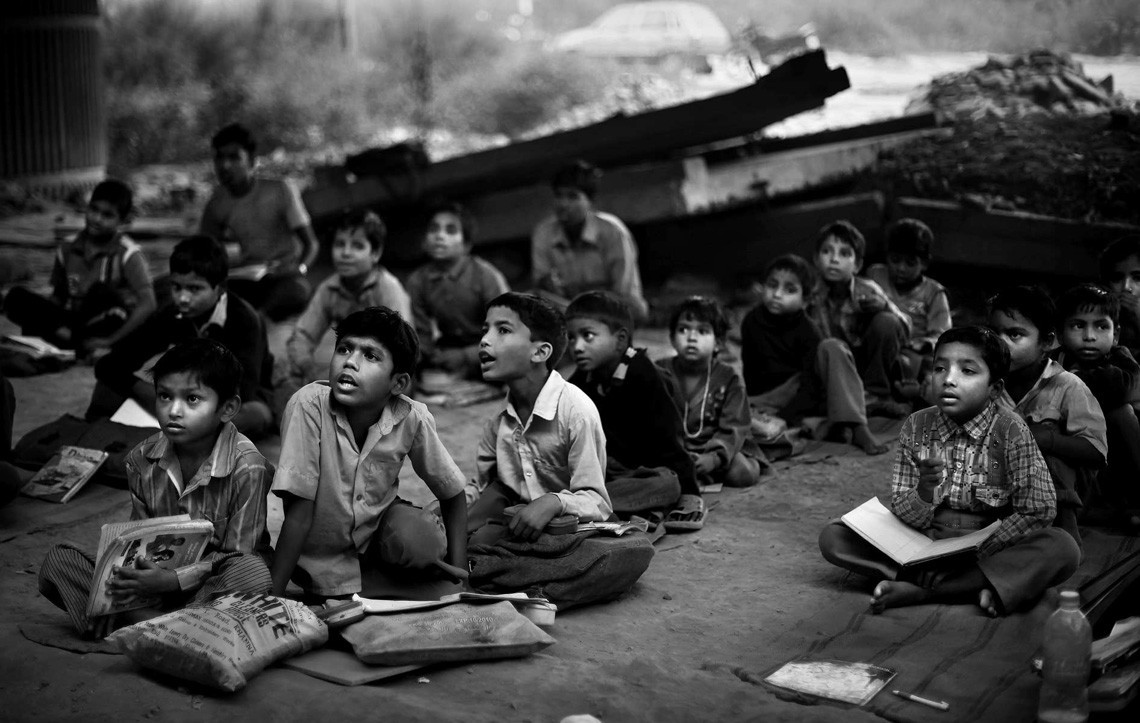Whether through digital channels, print or on exhibit, the impact, influence and reach of visuals has never been greater. But with so many images fighting for our attention, how do photographers create visuals that most effectively stand out and connect with us?
This World Photography Day, here’s 7 photographers who have helped bring our attention to the rights of children, in an ever-evolving environment, media landscape and culture now ruled by visuals.
Stephanie Sinclair is an American photographer, well known for portraying the gender and human rights issues around the world. Her widely published images of the occupation of Iraq and the war in Afghanistan refute characterizations of violence in anything but human terms. Although she has covered the dramatic events of war, her most arresting works confront the everyday brutality faced by young girls around the world.
The ongoing capstone of her career is her 15-year series, Too Young to Wed, which examines the deeply troubling practice of early, forced and child marriage as it appears in a variety of cultures around the world today. The series has earned numerous global accolades and now exists as a nonprofit with the mission to protect girls’ rights and end child marriage.
A ardent visual activist, Ravi Mishra’s work for human rights both behind the camera and on the field are noteworthy, to say the least. From issues affecting the lives of women and children, environment to pandemics, he has covered issues of India today. Founder at Everyday India, his work on child labour opened a can of worms in the coal mining industry.
Using the power of his photos to influence change, his work has been published across leading publications in the world. He has also been serving as the brand ambassador to one of India’s leading human rights organizations, the People’s Vigilance Committee, which fights for marginalized people in several Indian states.
Poulomi Basu is an Indian transmedia artist, photographer and activist, widely known for advocating for the rights of women and girls. Time and again, she has found herself amongst ordinary people who quietly challenge the prevailing orthodoxies of the world in which they live: rural women in armed conflict, a mother’s pain for a son lost to ISIS, to the wonder of a near blind child reaching for the light.
She created Blood Speaks – A Ritual of Exile, to utilise the power of photography and visual storytelling/activism to result in tangible social change and amplify the voices of women and girls from the majority world.
https://www.instagram.com/p/BPC6wRKBQKn/
Altaf Qadri is a world renowned and award-winning photojournalist, whose tryst with conflict while growing up in Kashmir, lends a great deal of humanism and insight to every topic he photographs and every frame he captures.
Qadri believes that photographs highlighting human suffering can make a difference, but he doesn’t restrict himself to only taking pictures. He recently helped policemen bring two United Nations staff to safety in Kabul, Afghanistan, after their guesthouse was attacked. His bent towards child rights in different emerging contexts, has reflected through his work over the years too.
This Associated Press Photographer, and Ted speaker, is also the founder of the School of Narrative & Aesthetic Photography.
Tanmoy Bhaduri, an Independent photojournalist based in Kolkata, India. He covers under-reported issues on development, human trafficking, women & child rights, insurgencies, climate change, land rights, conflicts & natural disaster. His works have appeared in national and international publications, bringing to the fore many stories of children across India and the North East.
Rohit Jain is an Independent Social Documentary Photographer and short story writer, based in New Delhi, India. His work focuses on human and life development photo stories. He aspires to go further and commit himself to do some deep photo stories about life, its ups and down, and social issues. From covering the disabled children of the Bhopal Gas Tragedy, Children working as ragpickers, tribal children, amongst others, his work strives for activism through photography. Though he has in the past used his art to create awareness, it is with ‘Aftermath’, a curation of 35 years of the Bhopal Gas Tragedy, that Rohit Jain, grantee of the Pulitzer Centre’s grant for Crisis Reporting, showed how visuals could awaken the public to social consciousness, moving beyond mere entertainment.
7. SMITA SHARMA
Smita Sharma is an independent photojournalist based in Delhi. Her work primarily focusses on human rights, gender, health and social issues. Her work has been published in various international publications and has been screened and exhibited globally.
Since 2015, Smita has been working on a project on human trafficking in South Asia where she is documenting the flesh trade, domestic servitude and bride trafficking and how it operates in the region.





